Table of Content
▲
When acquiring a property, a house is just one of several factors to take into account. Many buyers overlook additional construction expenses when purchasing a home. Costs associated with construction, such as hiring an architect or interior designer and procuring raw materials like bricks, doors, windows, concrete, cement, and labor, need to be considered when building a house. Therefore, before buying a home, it is essential to evaluate various criteria and formulate estimates based on these factors.
Despite offering a broad spectrum of amenities and features, residential units in gated communities are generally not tailored to individual preferences. Consequently, independent home constructions are more favored, as they provide residents the liberty to design their homes according to their preferences. However, constructing a house comes with its own set of challenges. Many homeowners are either unaware of the construction costs or overlook them, leading to potential issues such as cost overruns and compromised construction quality.
| Type | Average Quality | Good Quality | Best Quality |
| Area | 800 sqft | 800 sqft | 800 sqft |
| Estimated Construction Cost | Rs 13.6 lakh | Rs 14.8 lakh | Rs 16.8 lakh |
| Construction per square foot | Rs 1,700 | Rs 1,850 | Rs 2,100 |
Average cost of construction in India
| Expenses | Average cost for 1,000-sqft house |
| Brick wall construction without RCC | Rs 800 per sqft |
| Brick wall construction with RCC | Rs 900 per sqft |
| Architect | Rs 15,000 onwards |
| Civil work | Rs 1,500 per sqft |
| Raw material cost | Rs 7 lakh onward |
| Plumber/electrician | Rs 2,500 per sqft |
Typically, the construction of a 1,000 sq ft house in India can cost approximately Rs 12 lakh. It's essential to consider several key factors when evaluating the cost, noting that the average expenditure can significantly differ among various states.
Average cost of constructing a room in India
The cost of building a room can vary greatly from house to house. On average, you can anticipate the following costs for a room with dimensions 10×10.
| Tasks | Average cost |
| Soil excavation for foundation (4 ft deep and 4X4 ft in size) | Rs 2,900 |
| Brickwork (bricks, sand and cement bags) | Rs 46,000 |
| Concrete for wall beams, plinth beam and RCC slab | Rs 20,000 |
| Reinforcement work (Column beam, RCC slab, steel and labour) | Rs 24,000 |
Supplementary costs, including tile flooring, plastering, putty painting, plumbing, PCC flooring, water supply, electrical fittings, and sanitation, usually constitute about 60% of the total construction expense for a single room. Hence, based on the earlier calculation, the overall construction cost would be Rs 1,08,500, with 60% of this amounting to Rs 65,100. This leads to a comprehensive construction cost of Rs 1,73,600, encompassing all essential expenditures.
Average cost of constructing a bathroom in India
The total cost of constructing a bathroom varies based on several factors, including available space, the selection of sanitaryware, the quality of materials, and the types of fittings. However, here is a general estimate of the cost for bathroom construction.
| Task | Cost |
| Plumbing (materials and labour) | Rs 25,000 |
| Tiling (materials and labour) | Rs 160 per sqft |
| Sanitaryware (wall mounted toilets and washbasin) | Rs 15,000 |
| Fixtures (showers, faucets and drains) | Rs 18,000 |
| Paint (emulsion paint) | Rs 35 per sqft |
| Electrical work (electrical walls and ceiling points) | Rs 150-200 per running foot |
| Miscellaneous expenses | Rs 20,000 |
Average cost of constructing a basement in India
A basement, the space constructed beneath a property, can serve various purposes such as parking, commercial use, or storage. If you are contemplating the construction of a basement and need a cost estimate, here are the standard prices associated with building a basement for a 1,000 sqft property.
| Material | Average cost |
| Cement | Rs 1,30,000 |
| Steel | Rs 1,40,000 |
| Bricks | Rs 90,000 |
| Sand | Rs 50,000 |
| Stone | Rs 50,000 |
| Excavation | Rs 40,000 |
| Water | Rs 10,000 |
| Labour | Rs 80,000 |
| Architect/engineer | Rs 30,000 |
| Plumbing | Rs 60,000 |
| Widows and doors | Rs 60,000 |
| Framework and shuttering | Rs 30,000 |
| Flooring | Rs 50,000 |
| Electrical work | Rs 50,000 |
| Main gate and boundary wall | Rs 20,000 |
| Painting | Rs 50,000 |
| Other miscellaneous expenses | Rs 60,000 |
| Total construction cost | Rs 10,00,000 |
Things to consider before construction
Here are a few things you should think through before beginning the construction.
Land cost
The cost of land is not fixed; it fluctuates over time based on the location and surroundings. The land cost tends to be lower for undeveloped sites or those outside city limits. Conversely, the cost becomes notably higher when seeking land within city borders or in an area with an established neighborhood.
Construction cost
The cost of constructing a building is influenced by various factors, including the types of raw materials employed, such as wood, iron bars, cement, sand, labor, delivery timing, legal taxes, etc. Consequently, engaging a skilled architect is essential, as they can help in designing your home accurately and provide estimates for construction costs and completion dates.
Know your plot
After establishing the budget for constructing your new home, the subsequent step is to choose the neighborhood and area that best aligns with your requirements. Assess the growth of the community's infrastructure, considering factors like electricity availability, water supply, sewage systems, rainwater collection, waterlogging, etc.
Examine the accessibility of roads to your home, the amenities in proximity, the soil quality of the plot, and the elevation of the property concerning the road. If the property level is lower than the road, the construction costs may increase due to the need for additional filler material to level the surface. Therefore, it is advisable to opt for a property with a level surface aligned with the road. Choosing a site with a lower price but the potential for future neighboring development is a prudent investment.
Acquire complete knowledge
Before progressing further, acquire a comprehensive understanding of the construction process. Familiarize yourself with modern construction techniques, and consider the effectiveness of methods such as prefabrication, which can reduce costs and save time without compromising quality.
It is highly recommended to collaborate with a reputable and experienced contractor who possesses knowledge of every aspect of construction. Insufficient knowledge and experience may lead to unforeseen delays or expenses, potentially arising from restructuring or excessive use of raw materials. A competent contractor or architect can provide a precise blueprint for your home's design and construction, tailored to your budget and lot size. An architect can also be invaluable in sourcing high-quality raw materials.
Regulatory laws and norms
Building regulations can differ based on the location, influencing project timelines and construction expenses. If your land is situated in an ecologically sensitive area, obtaining construction permission from the municipal body or gram panchayat is necessary. This may result in delays and heightened costs. Furthermore, specific cities have distinct development regulations, like the stipulation of stilt parking in Delhi for a two-floor house. Non-compliance with these regulations may result in the rejection of plans by the municipal body.
Finishing cost
The completion of a house involves various aspects such as doors, windows, woodwork, electrical fittings, sanitary fittings, plaster of Paris (POP) work, and grillwork. The finishing costs can vary from Rs 500 per sqft to Rs 3,000 per sqft, depending on the selected amenities. This also encompasses the expenses for labor, including electricians, plumbers, tile masons, carpenters, painters, and polishers. The total construction cost of a house comprises both the civil work and finishing costs. For a 1,000 sqft home, the average construction cost may range from approximately Rs 1,300 per sqft to Rs 5,000 per sqft.
Contingencies
Another key consideration is to allocate a budget for contingencies, unforeseen expenses, or potential cost overruns. These circumstances may arise due to factors like alterations in design, spikes in material costs and permits, or other unexpected issues. Setting aside 10-15% of your budget for contingencies ensures that you are financially prepared to address any unexpected events that may arise during the construction process.
How to calculate construction cost per square foot?
The location of the construction site, the type of foundation, the state of the soil, legal requirements, the cost of the materials, the inflammation factor, the location of the construction, the interior décor and design, and a few other elements all affect the overall cost of building a house.
Building costs for civil work per square foot
In India, the typical cost of civil work for constructing a home ranges from Rs 800 to Rs 1,000 per square foot. This cost encompasses the expenses for building materials or construction supplies necessary for the foundation, plinth, walls, roof, boundary wall, parapet wall, plastering, flooring, and brickwork, including materials such as cement, bricks, sand, gravel, and steel. The civil work cost also includes labor charges, contractor fees, and shuttering fees.
Rate/cost of finishing a home or apartment per square foot
The cost of constructing a house ranges from Rs. 400 to Rs. 700 per square foot. This includes expenses related to flooring, tiling, electrical installation, plumbing sanitary, water storage tank, security, fireproofing, wall putty, painting, and window and door repair, all falling under the category of finishing work.
Finishing work encompasses doors, windows, wooden work, sanitary fittings, pop work, and grillwork. The finishing cost typically varies from Rs. 500 per square foot to Rs. 3,000 per square foot, depending on the amenities chosen. Additionally, labor costs for professionals such as electricians, plumbers, tile masons, carpenters, painters, and polishers are incorporated into the finishing costs. The overall construction costs of a house are primarily comprised of both the cost of civil work and finishing expenditures.
What affects construction cost per square foot?
When it comes to constructing a property in India, there are several factors that can influence the cost. Here are some of the essential factors to consider:
Design and planning
The cost of construction can be significantly influenced by the design and planning of your house. A well-thought-out design with proper planning has the potential to save money in the long run. Collaborating with an experienced architect is essential to develop a design that is not only aesthetically pleasing but also budget-friendly.
Here’s how design and planning can affect construction cost per square foot.
- Architectural characteristics: Distinctive architectural designs, innovative features and intricate detailing often demand specialised materials and labour, leading to increased costs.
- Structural complications: Complex structural elements, like unconventional shapes or cantilevered sections, may require extra engineering expertise and materials, resulting in higher expenses.
Size of the property
The size of the property is a crucial factor to consider when estimating construction costs. A larger floor area may result in higher costs compared to a smaller house. If you intend to add a first floor or additional floors to the property, the construction cost would typically increase by approximately 40 to 60 percent.
Quality of materials
The cost of construction is also influenced by the quality of materials employed. While opting for high-quality materials may incur higher upfront costs, it can result in long-term savings by reducing maintenance expenses and extending the lifespan of the property. Striking a balance between cost and quality is essential to ensure that you obtain the best value for your money.
In addition to quality, the choice of materials also heavily influences the total construction cost. Here’s how:
- Bricks vs concrete: Choosing between traditional brick construction and concrete structures can significantly impact costs. While concrete is often favoured for its durability and ease of construction, it may be more expensive in certain situations.
- Steel vs wood: The selection of structural materials, whether it’s steel or wood, can have cost implications. Steel is commonly used in large commercial or industrial buildings, whereas wood is prevalent in residential construction.
- Finishes and quality: The quality and type of finishes, such as roofing, flooring and interior materials, can vary widely in cost. Premium finishes and imported materials tend to be more expensive.
Location
Location is another critical factor that can impact construction costs. Building a house in a metropolitan city may incur higher costs compared to constructing in a smaller town. Moreover, the location also affects the accessibility and cost of labor and materials. Therefore, it is crucial to select a location that is convenient for you and aligns with your budget.
Here’s how location affects the construction cost:
- Urban vs rural: Construction costs tend to be higher in urban areas compared to rural regions due to elevated land prices, greater demand and limited accessibility.
- City-wise variations: Costs can also vary significantly among different cities in India. For instance, construction in major metropolitan areas like Delhi or Mumbai is generally more expensive as compared to smaller cities or towns.
Labour
Here’s how labour can affect the overall construction cost:
- Difference in wages: Labour costs can vary depending on local wage rates and the availability of skilled workers. In regions with a high demand for construction, skilled labour may command higher wages.
- Productivity: Efficient project management and skilled labour can influence construction timelines, potentially reducing overall costs. Conversely, delays caused by labour disputes or shortages can lead to increased expenses.
Taxes
Consideration should be given to the local taxes and Goods and Services Tax (GST) applied to raw materials used in construction. Typically, cost estimates for house construction projects are provided by architects or contractors.
Government regulations
Government regulation applicable in your area also plays a major role in influencing the construction cost per sqft.
- Building codes: Adherence to local building codes and regulations is a legal requirement, and any non-compliance can lead to substantial fines or necessitate costly modifications.
- Permits and approvals: Securing the necessary permits and approvals from local authorities often entails administrative expenses and the potential for project delays, which can impact both the project timeline and budget.
- Environmental compliance: Environmental regulations may necessitate particular practices or materials, particularly for projects located in proximity to ecologically sensitive areas or bodies of water, potentially influencing construction costs.
Builder or contractor
Another vital aspect to consider is the builder's fee. This fee can range from 5% to 20% of the overall cost, depending on the size and complexity of the project. Building a house is a significant investment, emphasizing the importance of partnering with a reputable builder with experience in the Indian market.
Types of construction materials
A Class
As this kind of building requires the best materials, the price to build a 1,000-square-foot home might range from Rs.15 lacs to Rs 25 lacs.
B Class
This construction uses medium-quality building supplies, such as steel, cement, fixtures, and fittings. In contrast to C class, a 1,000 square foot house constructed using B class materials would cost between Rs.10 and Rs.11 lakh to complete.
C Class
Using cheap fittings, low-grade cement, steel, and low-grade bricks and sand for construction. Typically, it costs Rs 7-8 lakh to build a 1,000-square-foot C-class home.
Cost of construction materials in India
Understanding the standard costs of essential construction materials in India is essential for planning and budgeting in the construction industry. Here is an overview of the costs associated with some fundamental construction materials:
Sand

Sand is a crucial ingredient for the production of mortar and concrete. The cost of sand varies depending on factors such as quality, location, and availability. River sand, a frequently used type, typically ranges between Rs 3,000 to Rs 4,500 per cubic meter. However, owing to environmental concerns and restrictions on sand mining, manufactured sand (M-sand) has emerged as an alternative, with prices ranging from Rs 1,500 to Rs 3,000 per cubic meter.
Bricks
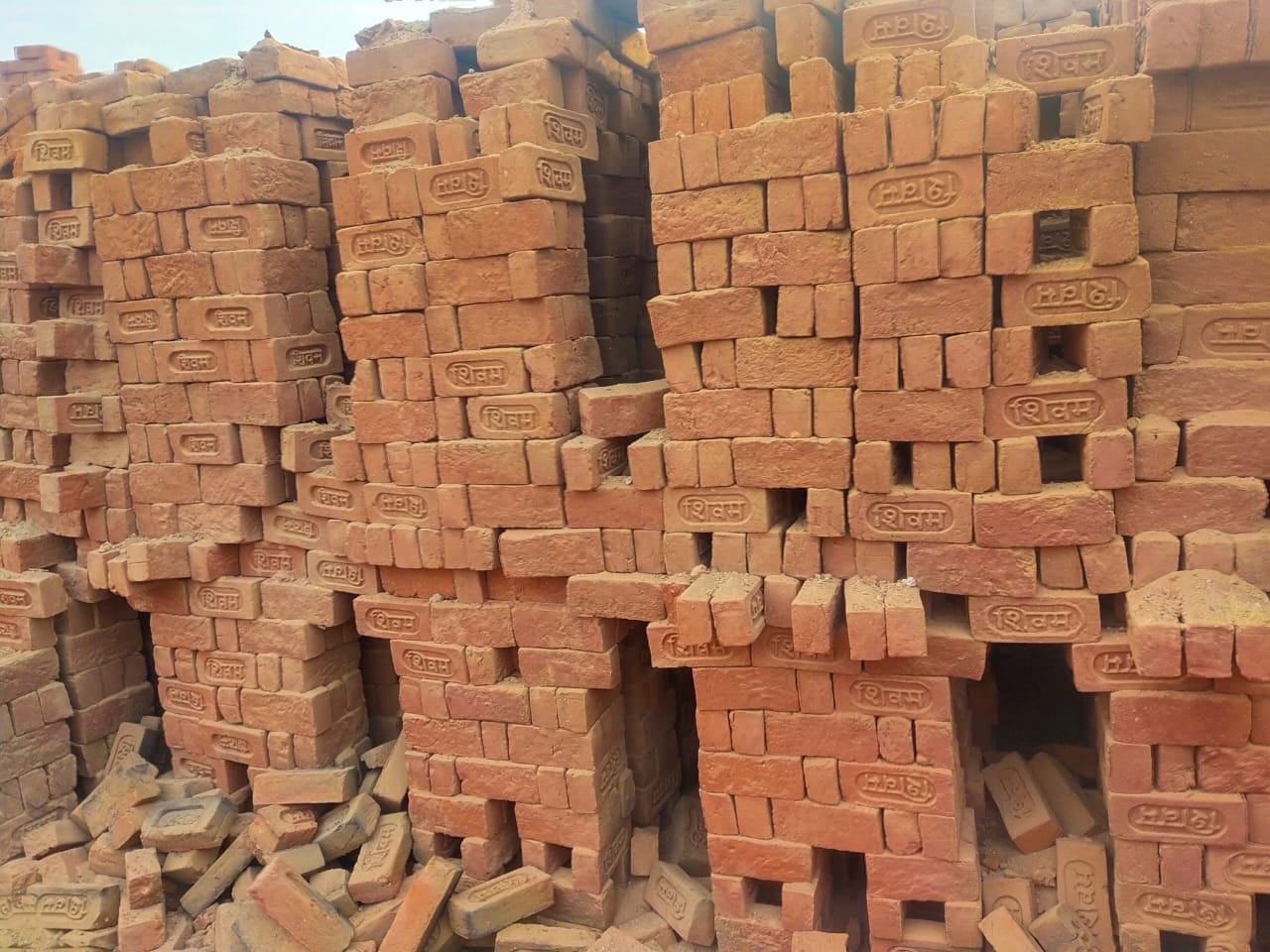
Bricks play a foundational role in construction and come in various types, including clay and fly ash bricks. Clay bricks, widely utilized, typically range in price from Rs 5 to Rs 10 per piece. Environmentally friendly fly ash bricks are more economical, priced between Rs 3 to Rs 7 per piece. Prices may also be influenced by factors such as location, quality, and transportation expenses.
Cement
.webp)
Cement, a vital binding material, experiences price variations based on brand, location, and quality. Ordinary Portland Cement (OPC), extensively used in construction, generally falls within the price range of Rs 350 to Rs 450 per 50-kilogram bag. Different types, such as Portland Pozzolana Cement (PPC), may have varying prices. It is advisable to consult local suppliers for precise pricing information based on specific requirements.
Steel
.jpeg)
Steel, commonly utilized in the form of bars or rods, undergoes price fluctuations influenced by market demand, quality, and availability. Thermo-Mechanically Treated (TMT) steel bars are widely used, with prices ranging between Rs 40,000 to Rs 50,000 per ton. Further variations in prices may occur based on the grade and diameter of the steel bars.
Concrete
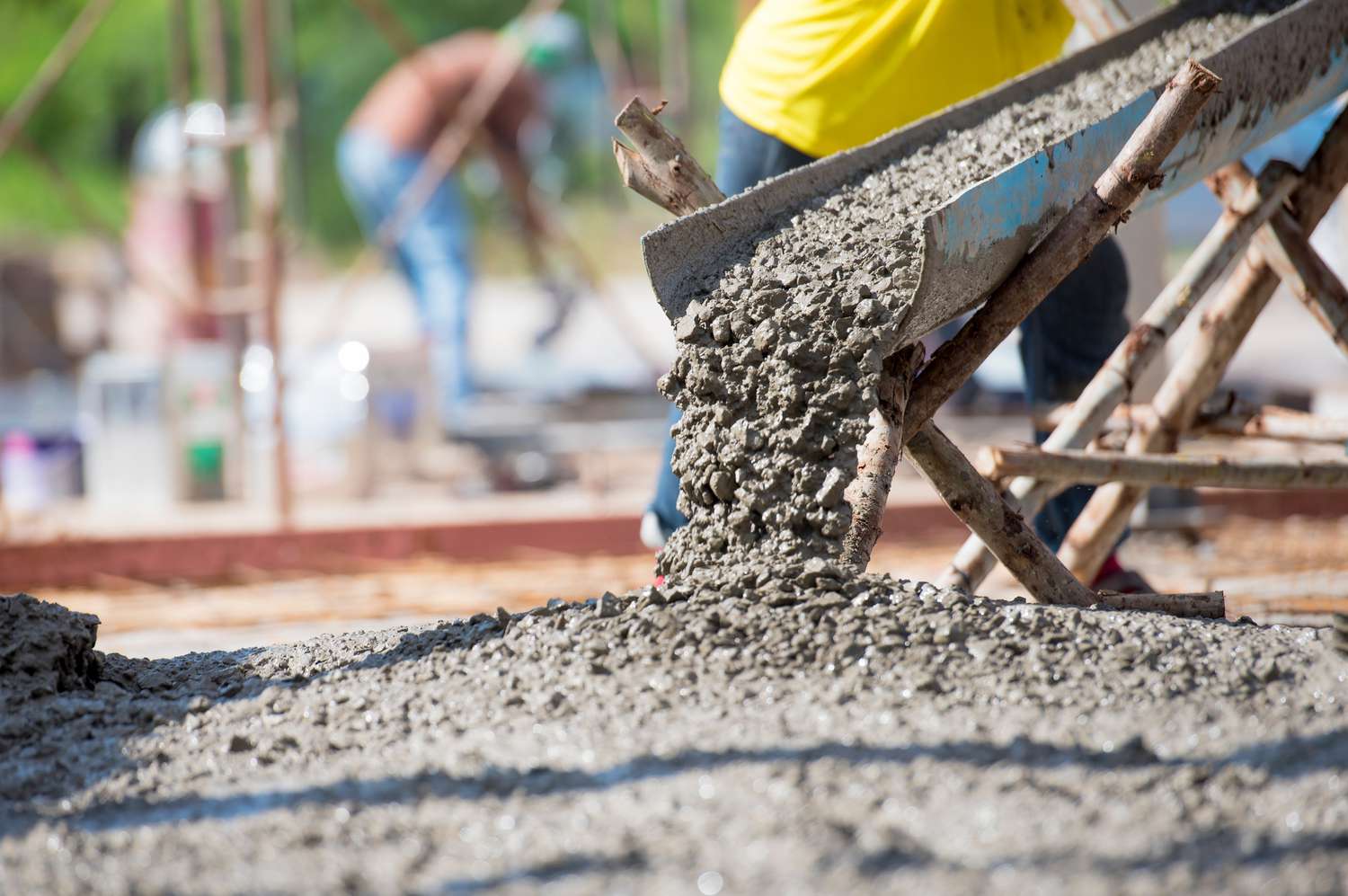
Concrete, a composite material consisting of cement, aggregates, sand, and water, is employed in various structural components of construction. The cost of concrete is tied to the prices of its constituent materials. Ready-mix concrete typically ranges in cost from Rs 4,000 to Rs 6,000 per cubic meter, depending on the grade and location. Considering material grades and local factors is essential for accurate budgeting.
Tips to reduce construction cost per square foot
Here are some practical tips for cost-saving in construction projects without compromising quality:
- Thoroughly plan the project, including materials, design and labour requirements, to minimise changes during construction.
- Engage in value engineering to identify cost-effective design and construction alternatives.
- Obtain competitive bids from contractors and suppliers to ensure the best pricing.
- Choose materials based on cost-efficiency, local availability and durability.
- Incorporate energy-efficient design and systems to reduce long-term operational costs.
- Embrace sustainable construction practices, which can lead to long-term cost savings and environmental benefits.
- Implement lean construction practices to optimise resource use and minimise waste.
- Optimise labour scheduling and ensure workers are well-trained to avoid rework.
- Identify and manage risks to prevent costly delays and unforeseen expenses.
- Employ efficient project management tools and techniques to track progress and control costs.
- Implement robust quality control processes to avoid costly rework and defects.
- Negotiate with suppliers and contractors to secure favourable terms and pricing.
- Minimise construction waste through proper planning and recycling practices.
- Utilise construction technology, such as Building Information Modelling (BIM), to enhance efficiency and reduce errors.
- Consider long-term maintenance costs when selecting materials and systems.
How to choose a plot for home construction?
In addition to estimating construction expenses, the choice of the plot for your home carries equal significance. This initial step significantly influences the average construction cost by defining the built-up and carpet areas. Experts emphasize selecting a plot with proper title deeds, encumbrance certificates, and utility bills from the prior owner. Additionally, it’s essential to examine whether the land falls under agricultural or non-agricultural categories and secure the necessary change of land use clearance for residential construction. Familiarity with the plot’s Floor Area Ratio (FAR) is crucial to comply with existing building regulations.
Also Read: Revamp Your Home with the Latest Interior Design Trends of 2024

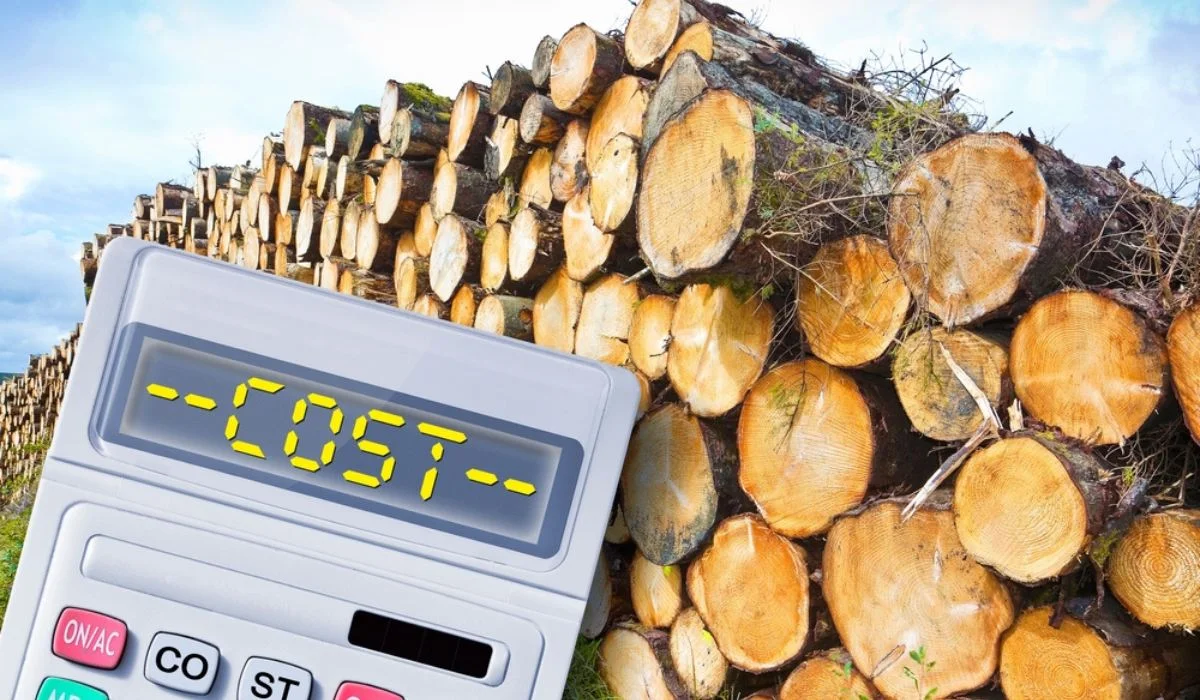
_1770964981.webp)
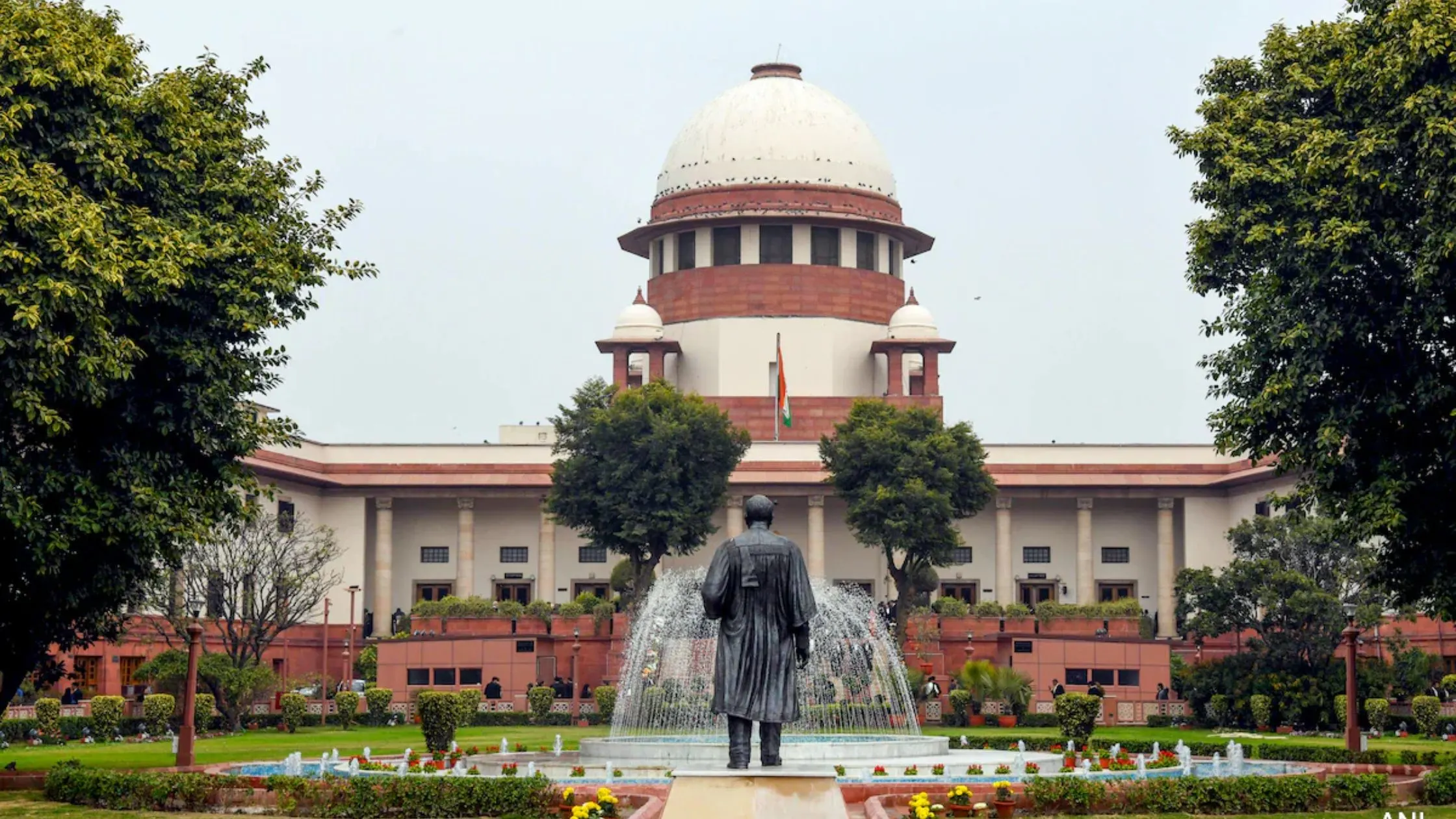
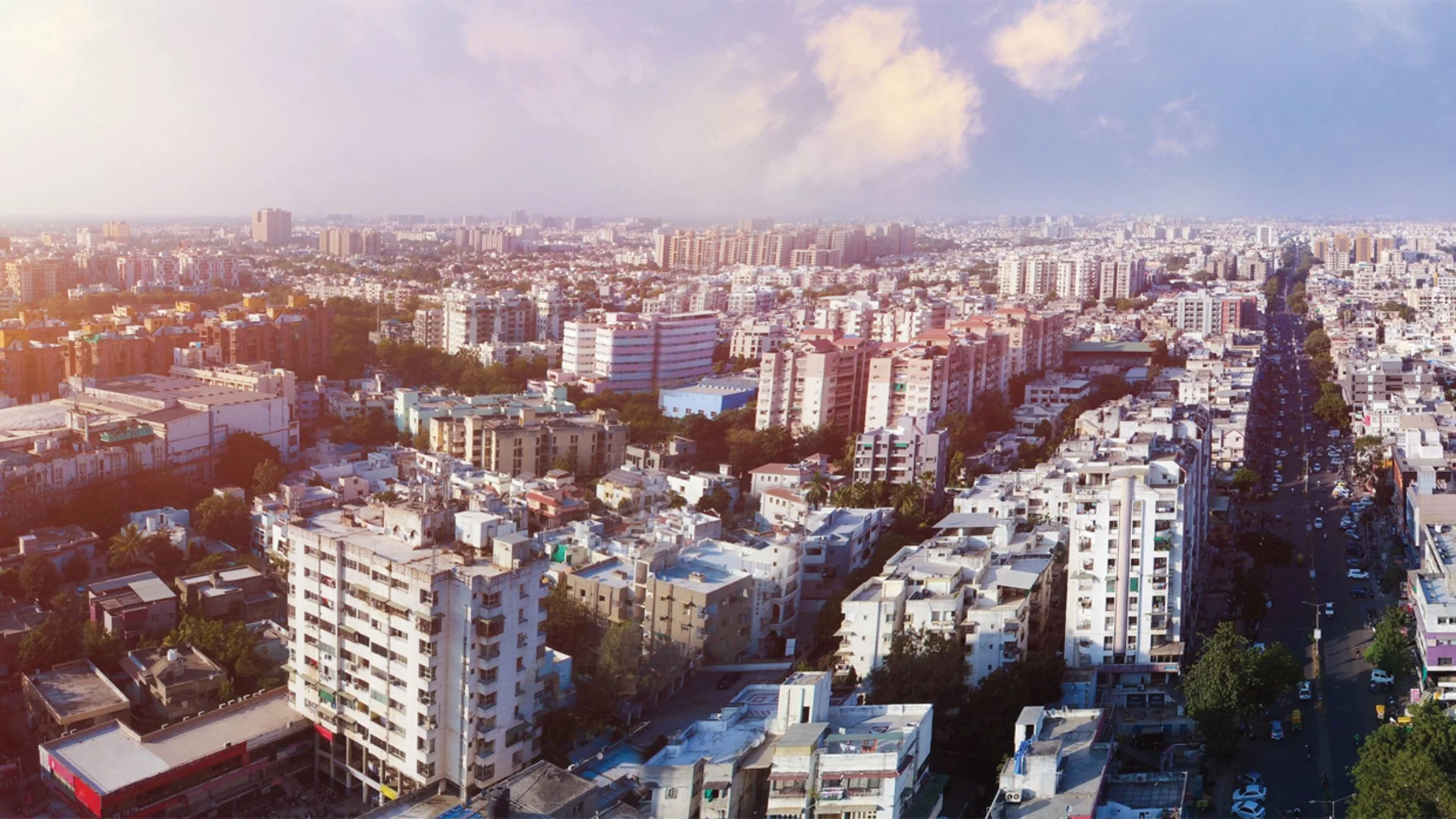


_1770976628.webp)
Ans 1. Cost of building = area of plot x construction rate per sq ft is the fundamental formula for calculating construction cost per square foot.
Ans 2. The labour cost is approximately 20% to 40% of the total budget of the construction.
Ans 3. For building a 2,000 sq ft house in India, the estimated total cost for the construction per sqft is approximately Rs 30 lakh. Additionally, it's advisable to allocate an extra 20% of the budget for miscellaneous and unforeseen expenses, bringing the total cost to approximately Rs 36 lakh.
Ans 4. Certainly, it's possible to construct a small to medium-sized house for Rs 10 lakh if you follow cost-saving strategies and plan meticulously.
Ans 5. Construction costs in India have shown a consistent upward trend in recent years, and it is unlikely that they will decrease in 2023. Several factors contribute to this increase, including disruptions in the supply chain due to the global pandemic and a growing demand for construction projects.
Ans 6. One of the most cost-effective methods is to plan your construction project carefully, utilising locally available and affordable materials such as concrete blocks, compressed earth bricks, bamboo, cement blocks, and concrete panels.
Ans 7. For individuals with experience in construction and careful planning, building a house may indeed be more cost-effective than buying one. However, for those lacking construction experience, purchasing a house is often a wiser choice, as building can turn out to be considerably more expensive.
Ans 8. Civil cost encompasses the expenses associated with the raw materials essential for constructing components such as the foundation, boundary walls, flooring, roof, interior and exterior walls, plastering and plinth. These raw materials comprise items like sand, concrete, cement, bricks, reinforced concrete and steel. Additionally, civil cost includes expenditures related to labour, formwork, contractors or shuttering.
Ans 9. Typically, a traditional three-bedroom residence can be built within an area of approximately 1,000 sqft.
Ans 10. Pay close attention to the regulatory requirements of your property's location to avoid penalties. Deviations from regional construction laws may result in fines or even a demolition notice from the municipal body or gram panchayat.
Ans 11. Consult an experienced architect based in the city where your property is located. Ensure the architect visits the site before designing the layout.
Ans 12. Constructing a 1,000 sq ft house typically takes 8-12 months if construction work proceeds without interruptions. Delays in funds, labour, or other factors can extend the completion timeline and increase construction costs.
Ans 13. You can choose between a labour-only or material plus labour contract. In a labour contract, you provide only the labour work, and raw materials are supplied by you. In a material plus labour contract, the contractor provides both materials and labour. You can assign all work to a contractor at a fixed construction rate or as agreed upon by both parties.
Ans 14. Yes, many banks and financial lenders offer loans specifically for home construction, known as construction loans.